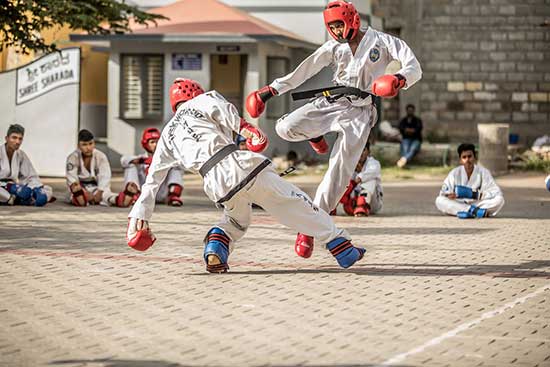The phases of taekwondo training are awarded different rankings, symbolized with belts. The deputy black belt is awarded after a period of training where it holds a higher rank as it indicates that the trainee has endured practice and made excellent progress in class.
The belts clearly show the stages you pass through and the complexities in the different steps. Attaining the deputy black belt is rooted in discipline and hard work, especially in training which takes months to years.
The belt awarding tradition is fundamental in understanding the history of Taekwondo. It is the best way that the art honors its trainees for their discipline, skills learned, and dedication to the craft.
Thus, reaching the deputy black belt is a milestone for most trainees and differs individually according to your commitment to the art.
Contents
How long does it take to get the deputy black belt?
As described above, moving from one stage to another entirely relies on the student or trainee’s ability to learn and progress based on the time that a professional trainer or school allocates.
Being one of the highest belt stages of Taekwondo, it is not easy to attain and will require more involvement and harnessing excellent skills to earn the dark blue belt.
It is held in the first GUP of the student, where the student is awarded after completing six stages.
Earning any belt in Taekwondo is challenging; without good discipline, it can take years. The exercises get more demanding and taxing as the student or trainee progresses.
This means that the stage may not be easy and requires more than just physical skill and technique for you to perform exemplarily.
This belt opens you to an extensive breadth of knowledge taught to the students and inducts them into crucial and complex skills.
Achieving these higher stages will therefore need mental tenacity and absolute discipline to pass through the stage.
What tests are required to get the deputy black belt?
Any student wishing to move to any stage has to go through a series of tests to make them fit to move to another rank.
Advancing to a deputy black belt will require the student or trainee to have definitive skills, broader knowledge to support his base, and excellent technique.
Again, individuals differ in how they handle the different stages; thus, the results are different in all tests. Additionally, not all instructors use the same method to test; however, they revolve around what has been taught in the same stage.
The student’s progress is ultimately measured by belt testing, in which skills and techniques are highlighted in the process.
At this stage, a few inductions or tests from other belt tests and rankings can help you effectively prepare for your deputy black belt test.
The transitions from one stage to the other can come in handy in preparing an efficient foundation for the deputy black belt.
Mastering skills and techniques should help you move up the stages and earn the belt. This process can take a few months to years, depending on the dedication and discipline of the student to the craft.
What is the next level after this belt?
The deputy black is closely followed by the black belt 1st DAN, which symbolizes the deep rooting of the students.
At this stage, students have been exposed to different teachings and techniques to use and follow in their training.
Therefore, with the built knowledge, they can slowly incorporate what they have been taught in other stages at this stage.
Combining strategies comes in handy at this stage as they can easily transition some of the teaching and techniques learned in every stage without difficulty.
Foundation continues to be taught to ensure students do not lose focus on martial arts traditions and practices.
As explained earlier, the more there is advancement in the stages, the teachings also get complex and thus require more from the individual student.
Take Away
Attaining different stages can prove complex and challenging for many students or trainees. Dedication, discipline, and perfecting style and technique are essential to pass through the other ranks.
This first black belt is a delicate stage and requires very intense determination from an individual level.
Building strength and good technique at this stage also ensure a seamless transition to other stages and learning.
Building on the different stages or rankings will vary according to the teachings and instructions, thus affecting the period in which you attain the rankings.
However, an essential part of these teachings is ensuring that the principles are well covered.





